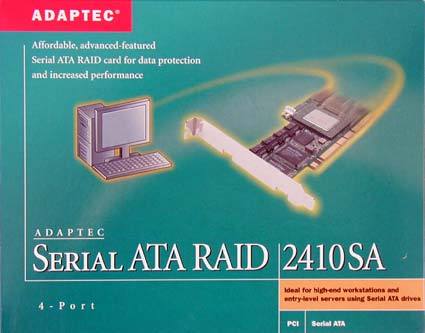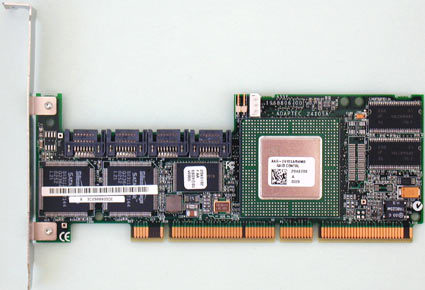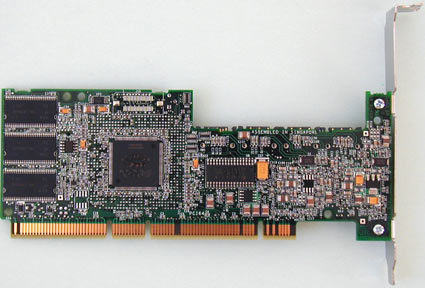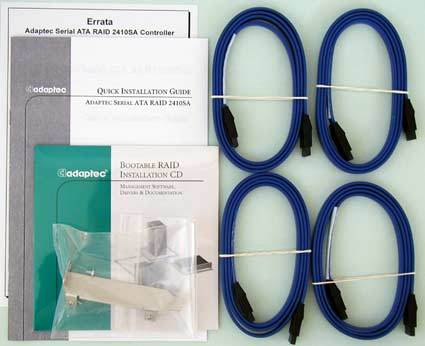Cheap and Reliable RAID 5 Storage Compared
Adaptec 2410SA
BIOS: 5934
Driver: 4.0.0.5694
Adaptec is without doubt one of the best known names in the world of hard disk controllers. The company has established a solid reputation with its range of SCSI products. But even Adaptec cannot ignore the trend away from expensive SCSI solutions in favor of more affordable and larger ATA disk drives - which is where the 2410SA comes in.
The card uses familiar, tried and tested components. A RISC processor from Intel (80303) looks after the XOR parity calculations needed for hardware-based RAID 5.
Adaptec does not have its own Serial ATA chips but has used two Sil3112 chips from Silicon Image. The package is rounded off with 16 MB on-board cache memory.
The Adaptec designers have decided to use a low-profile card, which - assuming a shorter slot plate is available - can also be installed in low profile (2U) rack-mounted servers. We were not terribly impressed by the arrangement of the SATA ports: positioning them further to the right would make connecting up easier in most cases.
Unlike the HighPoint and Promise controllers, Adaptec has implemented a 64 bit PCI interface, which handles up to 66 MHz. As usual, the card is downwards compatible; so it will work fine in a standard 32 bit slot.
Get Tom's Hardware's best news and in-depth reviews, straight to your inbox.
The fact that the BIOS can only be updated through DOS commands is somewhat irritating. What's more, you need two floppies. A Windows option would have been much more user-friendly. When changing the controller (i.e. replacing a faulty one), Adaptec's software insists on verifying the consistency of the array. A sensible idea.
The Adaptec 2410SA also supports online capacity expansion. Drives can be swapped individually when changing all the drives in the array to increase storage capacity.
Last but not least, Adaptec provides a good selection of drivers on its website for all Windows systems, Red Hat and Suse Linux, SCO UnixWare 7.11 and Caldera Open Unix 8.

Patrick Schmid was the editor-in-chief for Tom's Hardware from 2005 to 2006. He wrote numerous articles on a wide range of hardware topics, including storage, CPUs, and system builds.




